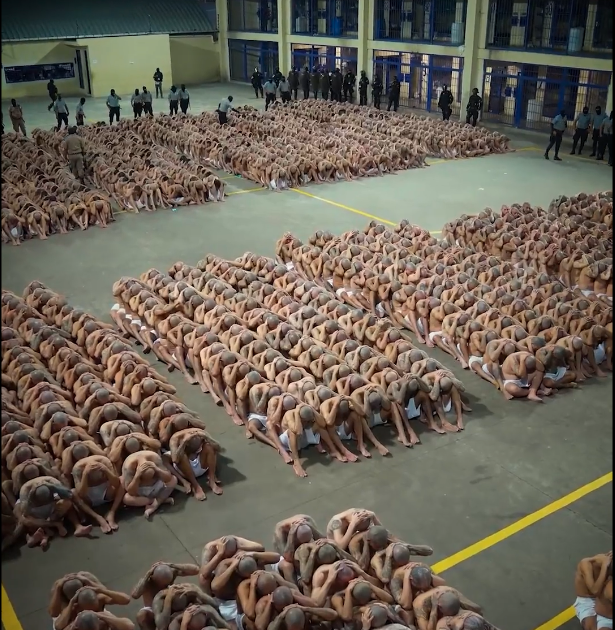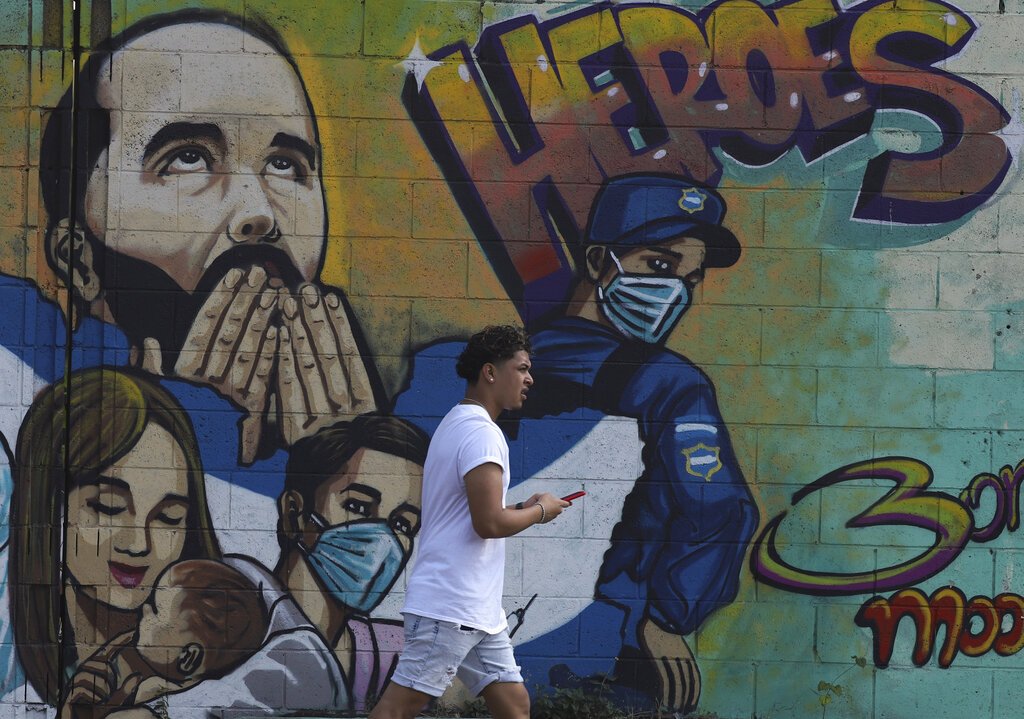El Salvador’s Newest Maximum Security Prison, The Latest in Bukele’s Gang War
20,000 new inmates being interned at The Center for Confinement on Terrorism on Friday, February 24, 2023. Image source: Twitter/Nayib Bukele
On Friday, Feb. 24, 2023, El Salvador’s President Nayib Bukele announced Salvador’s newest maximum security prison: The Center for Confinement on Terrorism. This announcement marks Bukele’s most recent measure in his campaign against crime, resulting in a significant increase of the country’s prison population.
In a Twitter post, Bukele shared images from the new prison; 2000 gang-members are displayed lining up to enter their new jail cells. “This will be their new home for decades, where they can do no more harm to the population,” Bukele captioned.
El Salvador has long suffered from persistent and violent gang activity. Several “pandillas” oversee operations throughout El Salvador, most notably Barrio 18 and MS-13.
MS-13 originated in 1980s Los Angeles among Salvadoran immigrants after fleeing a violent civil war in their home country. Over time, other Central American migrants joined the fray, and ultimately in the 1990’s, several found themselves deported back to their home countries. Gang violence in El Salvador exploded as a result of mass deportations and gang affiliation.
According to the International Crisis Group, “around 70,000 active gang members made it impossible for politicians and state officials not to negotiate with them in order to provide services and carry out election campaigns.”
The incident that launched Bukele’s war on drugs occurred in March of 2022, when MS-13 coordinated a systematic mass killing, where bodies were found throughout El Salvador, casualties reaching up to 73 in one weekend.
Under this context, Bukele announced his “war on gangs'' shortly after on Mar. 27, 2022. Initially intended to last for 30 days, Bukele declared a state of emergency, suspending constitutional rights and deployed police forces to attenuate the violence. In the 4 days, his police forces imprisoned 4,000 people.
El Salvador remains in a state of emergency until today.
Since his “war on gangs,” Bukele’s police and security forces have imprisoned over “50,000 alleged gang members, leading to a dramatic decrease in the murder rate,” according to Amnesty International.
At the same time, the international community has expressed concern over the authoritarian nature of Bukele’s indefinite state of emergency. Using information from a leaked database in El Salvador, Human Rights Watch points out “large scale abuses” committed against detainees including extreme overcrowding, violations of due process, and mass arrests and deaths in custody.”
Salvadoran President Niyab Bukele and his police force depicted on a mural located in the Soyapango neighborhood of San Salvador, El Salvador, Tuesday, Feb. 28, 2023. Image source: AP Photo/Salvador Melendes
Dubbing his country “the safest in America,” Bukele has used his success in deterring gang violence to increase his popularity with the El Salvador’s electorate. It’s working.
It is no small feat to reach the lowest homicide rates in 10 months for a government who previously was unable to govern effectively. According to a CID Gallup poll conducted in January, 2023, Bukele enjoys a 90% approval rating within the country.
His security policy also enjoys a high approval rating within El Salvador, irrespective of the critics and concerns highlighted by the international community. According to the University Institute of Public Opinion, the security program and the state of exception enjoy an approval rating of 7.99 out of 10.
The new prison complex is the latest in this security policy aimed at both garnering public support for Bukele in his presidency but to take his measures to the next level.


